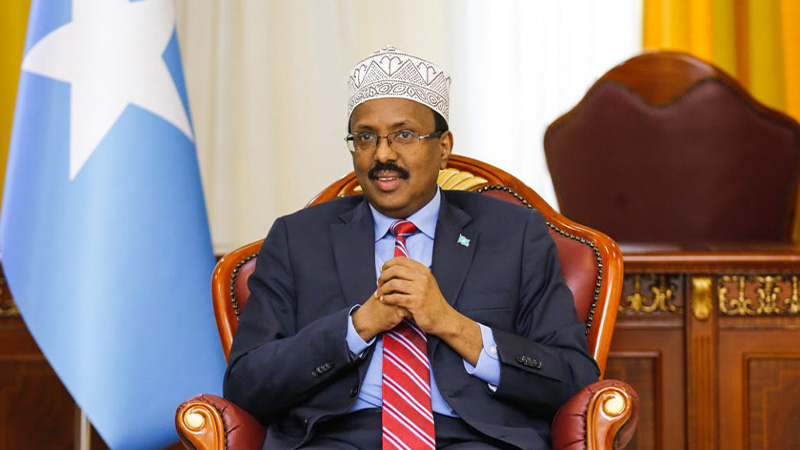MOGADISHU (Somaliguardian) – It has been nearly three and half years since Mohamed Abdullahi Farmajo made a string of promises during his vigorous 2017 campaign to be 9th president of Somalia. Now, three and half yours on, he has changed his mind to retain the 2016 electoral model following an agreement with the leaders of five federal member states and the Mayor of Mogadishu.
As an astute figure and thanks to a vibrant social media campaign he established, President Farmajo symbolized himself as the only man to revive the hopes of dispirited Somali nationals and has more recently insisted to hold popular elections, in opposition to calls by regional states leaders proposing to retain the 2016 electoral model, provided that the incumbent leader’s mandate expires within four months and that no step is so far taken forward.
At the outset of electoral talks, the president knew his position was not rigid enough and he was in no way able to hold one-person one-vote elections within four months. His best friends and advisors, his Intelligence Chief Fahad Yasin and the Acting Prime Minister Mahdi Guled all advised him to wear down federal states leaders by attrition but finally agree to an indirect election model.
Mr Farmajo’s intention was to tell the public that the federal states leaders forced him to break his promise of one-person one-vote election and brand them as spoilers of peace, who are against any progress in the war-torn Horn of Africa nation. In fact, his propaganda has in a way sold out but proved a sell-out in another that many believe would cost him dearly in Election Day.
He was already hanging on by his fingernails after plotting the ouster of his Prime Minister and then came under pressure from the US and the EU, both pushing for an end to a political stalemate over elections. Retaining the 2016 election model was the only way out of the crisis and if truth be told, the only option available to put his shortcomings out of sight.
In a speech following the signing of deal with regional leaders, president Mohamed Abdullahi Farmajo said he had come a long way from the view of popular elections to an indirect election, adding that he chose to compromise for the good of the country. That was all why the President had earlier insisted to deliver on his promise. The intention was, however, to accuse federal member states leaders of standing to his way.
Although a breakthrough was reached, many loopholes have immediately appeared, steering the efforts of regional leaders to a dead end. They agreed to a timely election but failed to set date, given that their loud rumblings had earlier raised concerns of mandate extension and delay in elections, but the same delay will now be inevitable.
The deal tipped balance in favor of president Farmajo who achieved to end the talks without addressing major points of dispute and undoubtedly, the epicenters, which include presence of Turkish-trained troops in Gedo region, his government’s plans to overthrow Jubaland administration and row with Puntland over national exams. This delicate ruse – though it works – will eventually have an ineffable upshot and possibly return of another stalemate. The agreement will also be unable to bring normal back, let alone it improves cooperation between federal and regional governments on key forefronts including security.
Contact us: info@somaliguardian.com
